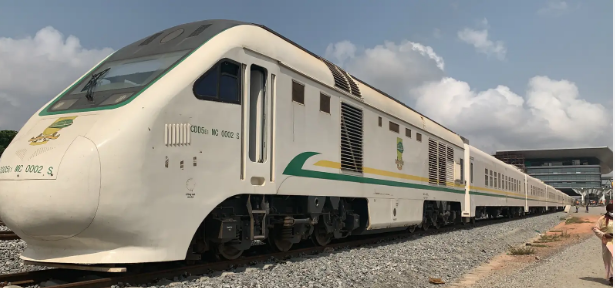In a bold move to invigorate Nigeria’s railway sector, the Minister of Transportation, Senator Said Alkali, has expressed optimism that newly graduated engineers and technicians returning from China will play a pivotal role in the country’s ambitious 25-year Railway Modernisation Plan.
Senator Alkali made this remark during the welcoming ceremony for Nigerian students sponsored by CCECC Nigeria Limited, who recently returned from China.
He emphasised that by leveraging the knowledge and skills acquired during their studies, these graduates are expected to significantly contribute to the government’s efforts to revitalize and remodel the railway sub-sector.
The Ministry is further bolstering this initiative through comprehensive “On the Job” training programmes, ensuring that the graduates are well-equipped for the challenges ahead.
This initiative aligns with the Federal Government’s National Local Content Policy for Railway development.
In 2018, the government introduced the “Advocacy for Enhanced Local Content in Nigeria’s infrastructural development based on Nigeria-Chinese Bilateral Agreements,” directing the Federal Ministry of Transportation to ensure technical participation of local engineers and facilitate knowledge sharing through apprenticeship programmes.
According to Senator Alkali, “The ministry has taken several steps to ensure effective policy implementation, including:On-the-Job Training: Engaging Nigerian engineers, technicians, and craftsmen in training programs organized by the Federal Ministry of Transportation and engineering consultants.
Monitoring and Evaluation: Ensuring contractors and consultants transfer knowledge through robust sharing techniques. Education Sponsorship: Sending over 190 young Nigerians to China to study railway and transportation-related courses, sponsored by CCECC. Locomotive Retrofitting: Updating Nigeria
Railway Corporation locomotives to dual-fuel systems to reduce operating costs.”
Senator Alkali emphasised that the success of these initiatives is evident in the revival of the rail transport subsector, which played a crucial role in Nigeria’s economy from the 1960s to the 1980s. The government has prioritized railway revival, leading to numerous completed and ongoing modernization projects across the country.
The minister highlighted the critical role of trained and skilled manpower in sustaining these projects and noted that the transportation sector, as an enabler of economic growth, is undergoing reforms to accommodate contributions from newly trained experts.
He also praised CCECC’s commitment to Nigeria, including the construction of the Federal University of Transportation Daura, which offers further academic opportunities for those interested in transport careers.
Additionally, recent constitutional developments moving railway services to the concurrent legislative list open new opportunities for the graduates in various sectors.


